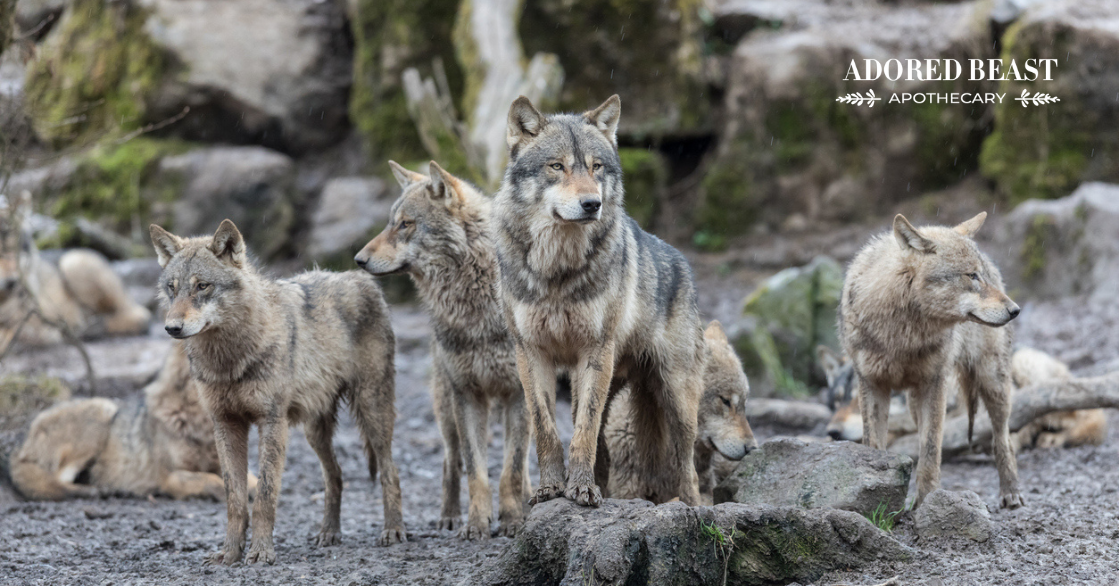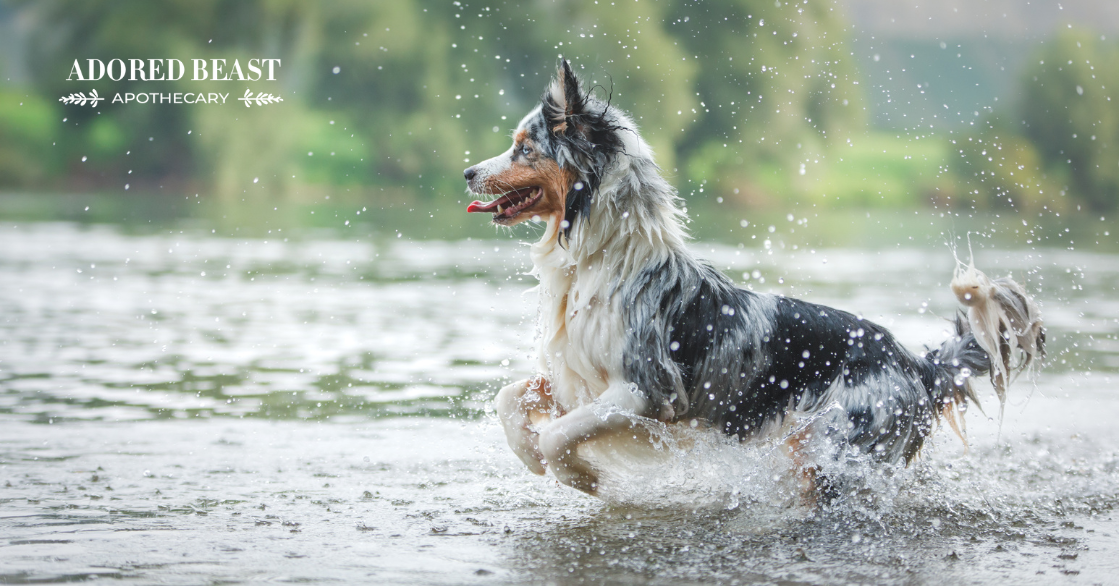Canine Inflammatory Bowel Disease (cIBD or just IBD) is a debilitating gastrointestinal condition common in dogs. IBD is a chronic disorder, with symptoms that include vomiting, lack of appetite, weight loss, gassiness, and abdominal discomfort.
And unfortunately, there’s no known cure, and limited options for treatment.
But according to a new study in Applied Microbiology, the gut bacteria from wolves may actually be the key to alleviating it (and not just IBD)…
The Gut: Past vs. Present
Over the course of evolution, lifestyle changes for humans have led to a significant alteration in gut microflora. We know that the processed food we eat today can’t even compare to the whole, fresh food that made up the entire diet of our ancestors. Then there’s the lack of minerals in the soil, the toxins we’re exposed to, and so much more…
And the same goes for our dogs.
As far as we know, dogs were the first domesticated animal, and they shared a common ancestry with the grey wolf. But with time, just as with humans, lifestyle changes – including diet – led to a change in that ancestral connection. We know that our dogs these days eat very differently than the past. Often, this means carbohydrate-rich kibble, or diets lacking certain bacteria that can help them thrive.
According to the researchers, these deviations from the ancestral state “include a depletion of the gut microflora that has potentially included impacts on increased instances of cIBD.” For instance, the study notes, “the starch in the diets of domestic dogs is resistant to digestion, which can potentially have a negative impact on gastric physiology.”
So, our dogs’ gut microbiomes are not the same as they used to be, and those traits they once shared with wolves are all but gone.
But, according to the study, we may be able to help our animals by reintroducing them!
[RELATED] First Ever Ancestral Pre and Probiotics for Dogs: Looking Back to Move Forward
Gut Bacteria from Wolves: The Research
Knowing that prebiotics, probiotics, synbiotics and postbiotic compounds have all been proposed as treatments for IBD in humans, researchers at Oregon State University set out to apply the same logic to our canine companions.
And what they’ve found is incredible!
By isolating certain gut bacteria from wolves, they were able to determine that “The bacterial isolate inhibited the growth of three target bacteria, including S. aureus, E. coli, and M. luteus.” Additionally, “Non-toxic, spore-forming bacteria promote anti-inflammatory immune responses in the gut and inhibit pathogen growth.”
This bacterium, characterized as Paenibacillus sp., also “inhibits the growth of other bacteria such as Staphylococcus aureus and encodes enzymes capable of digesting complex carbohydrates along with other gene systems expressing antimicrobials, thus indicating that this bacterial isolate could be a potential useful probiotic for domestic dogs.”
They concluded that “it makes sense to obtain new probiotics from free-ranging species to replace microbiota lost due to domestication.”
Yes!!
This is, in fact, the same philosophy behind ABA’s The Wolf pre- and probiotic!!
What We Can Learn From This
With each new day, science brings us back to Mother Nature – bridging the gap between the two. By looking back to our dogs’ ancestors, we’re continuing to find the keys to health and longevity.
And ABA founder, Julie Anne Lee DCH, has been researching this ancestral link for the last decade, looking at the connection between diet and environmental changes and ancestral lifestyle.
What’s really cool is that our research with our wolf strain shows that maintains its integrity in a dog’s ph, has immune-modulating and anti-inflammatory properties, and helps to repair the integrity of the gut lining.
We know that our domesticated dogs’ bodies face a lot of strain due to environmental factors – including diet – that can potentially make their risk for GI issues like IBD greater. So, knowing that there’s a way to help increase the beneficial bacteria in the gut from probiotics from a wolf is awesome!
It also proves that providing a wide range of bacterial diversity is only going to benefit our animals. Widening the scope to include bacteria taken from the microbiome of the wolf has proven to be of value, and as the researchers note, could significantly improve digestive health.
For us, feeding a whole, fresh food diet is a really great way to ensure live bacteria and enzymes enter the body, and feeding different foods in rotation helps keep the system on its toes. But, we always want to try and add that “wild,” ancestral element in. We can’t replicate it with diet, so you want to try to add in those missing factors. That’s what The Wolf (and our other ancestral product, Soil & Sea) does – helps to reinoculate the gut with that incredibly valuable ancestral bacteria!
And it helps to prove what we’ve been saying for ages – that our dogs have more in common with wolves than we may ever understand!












